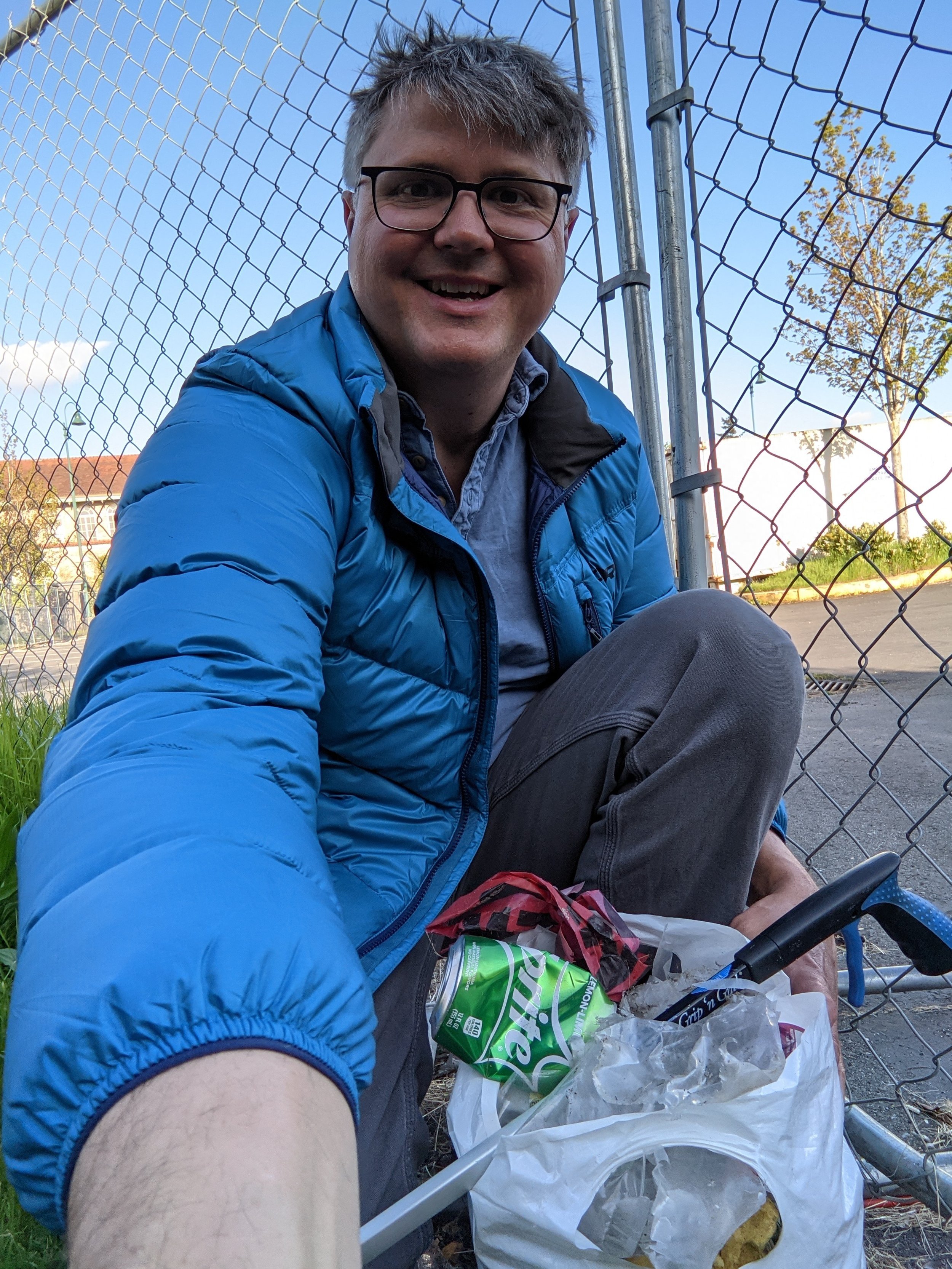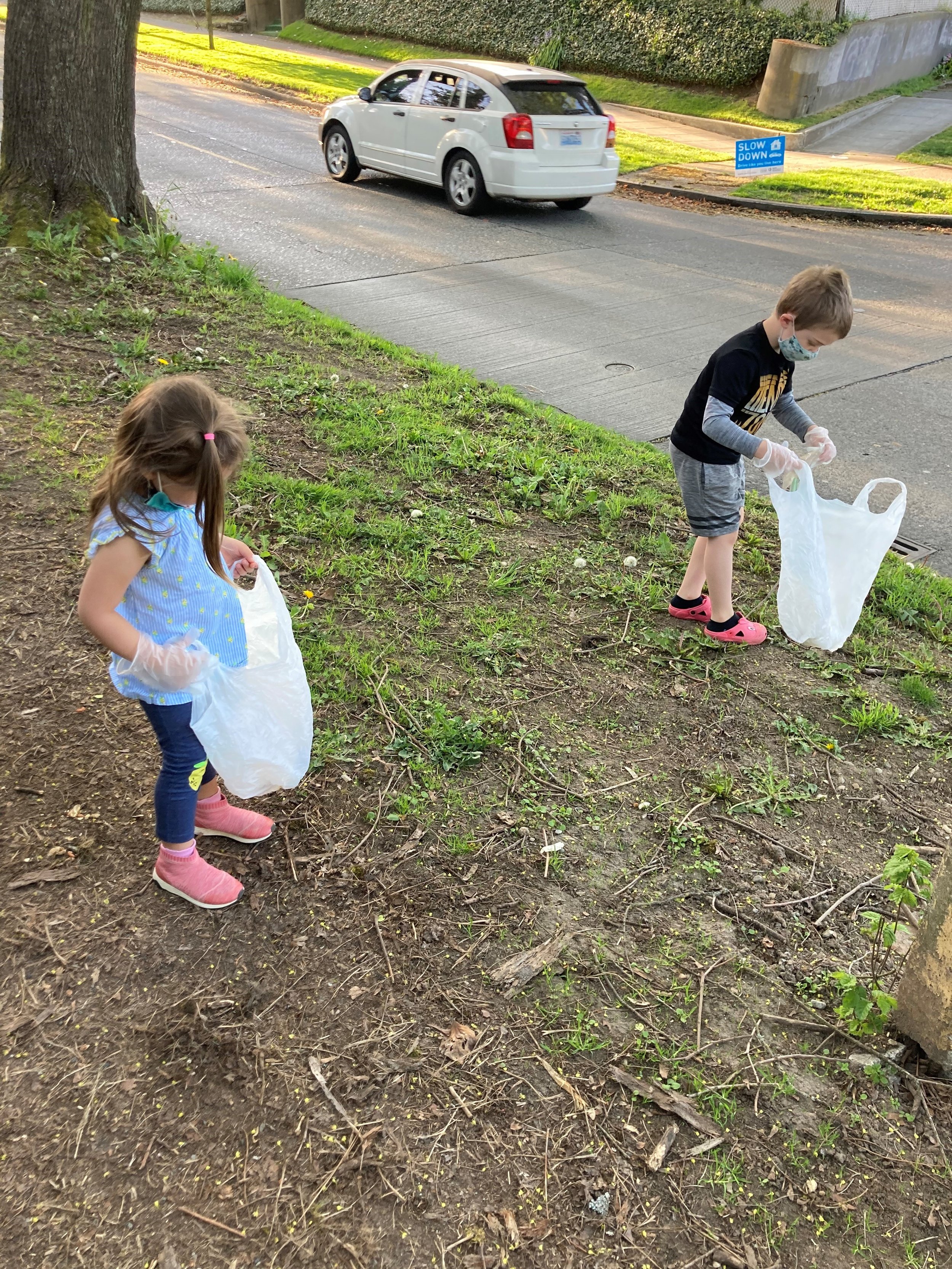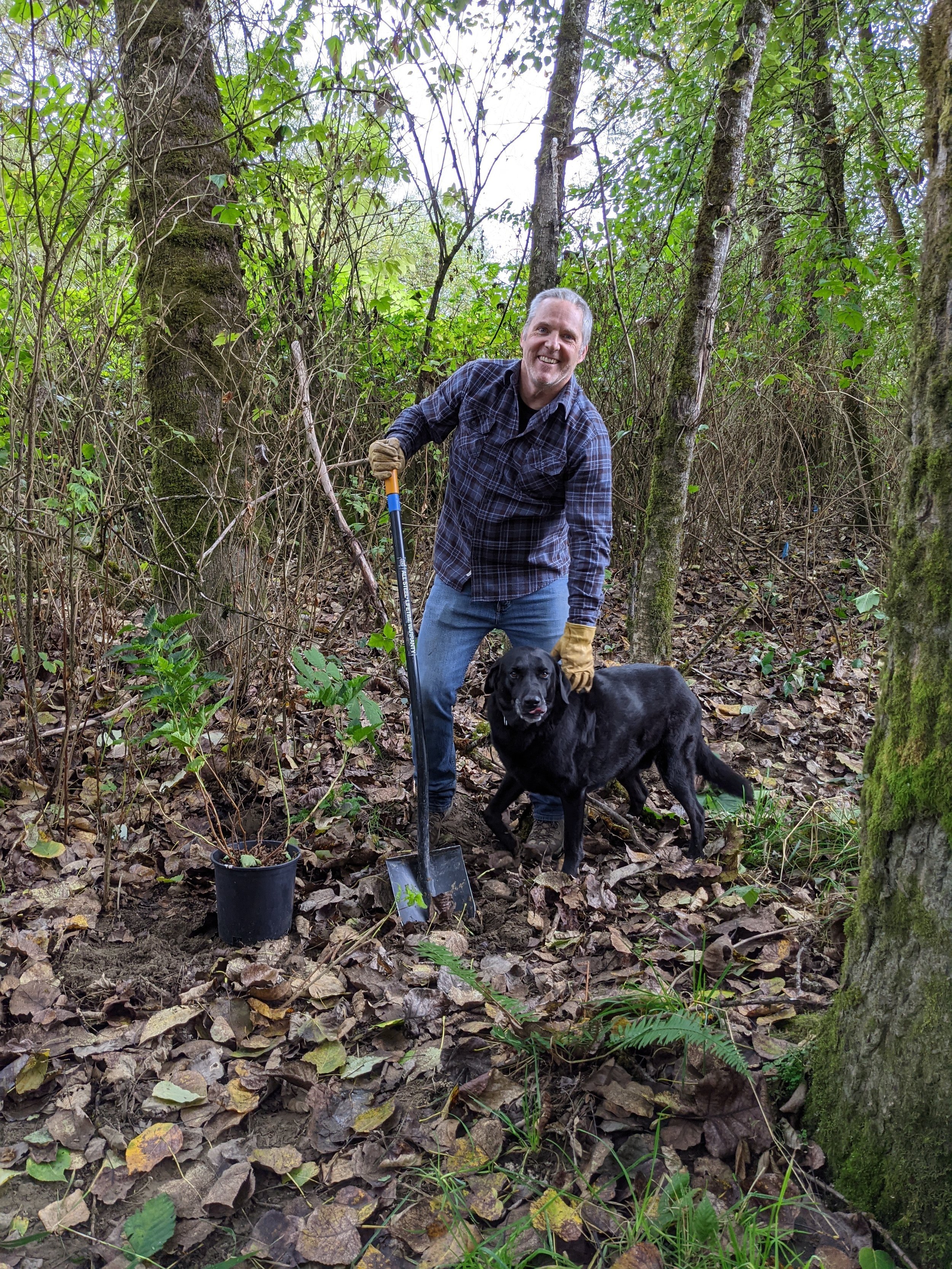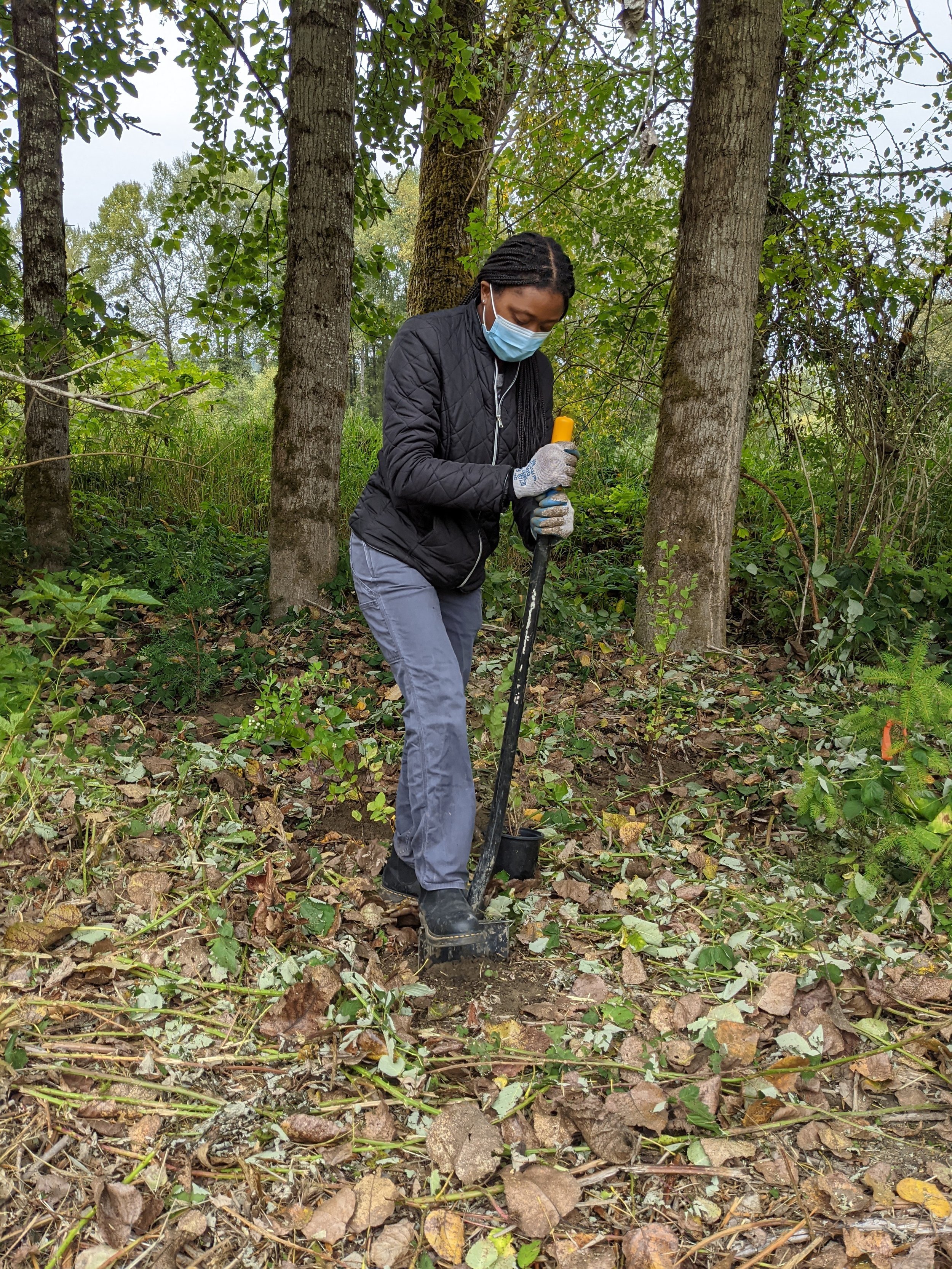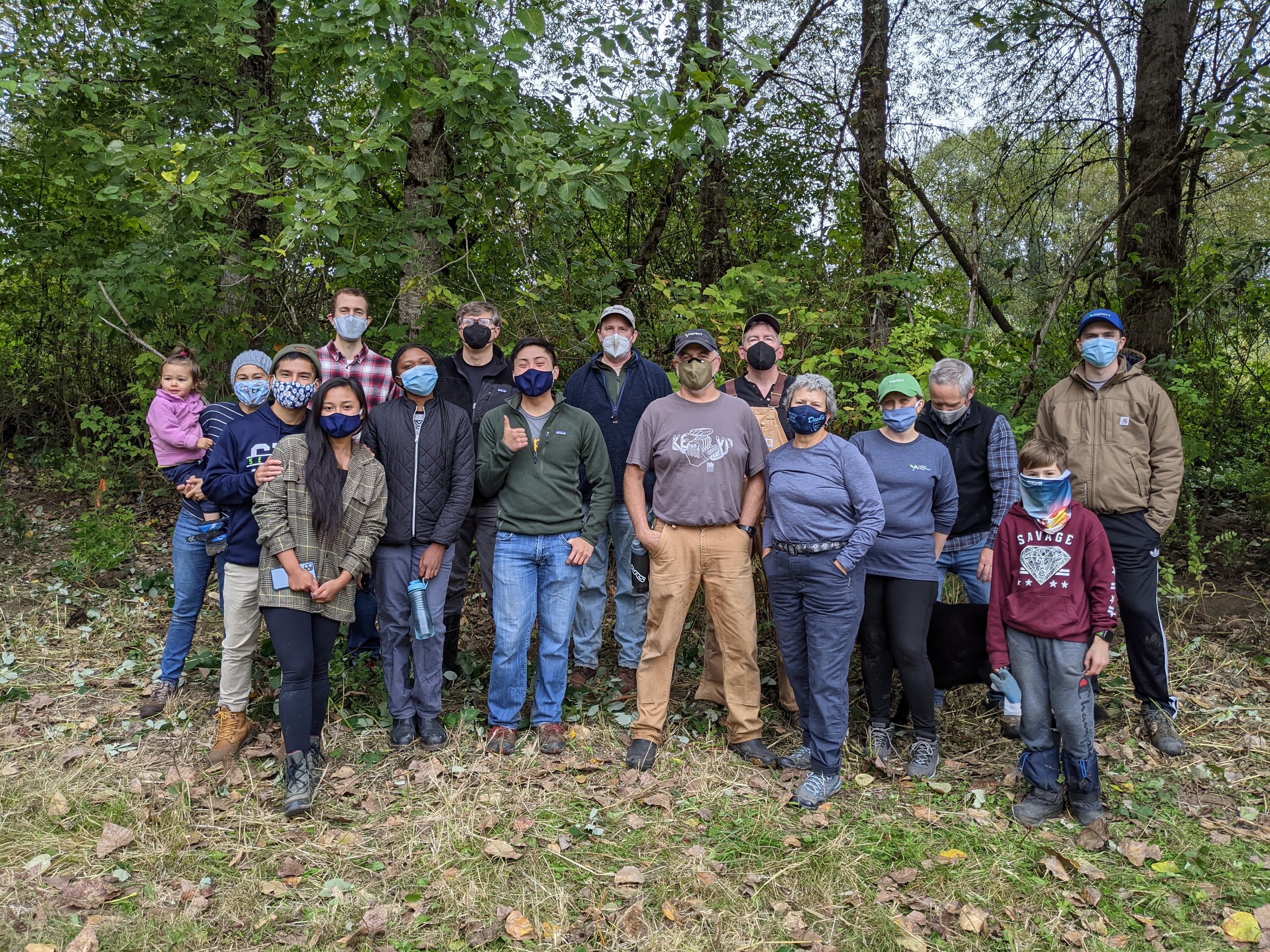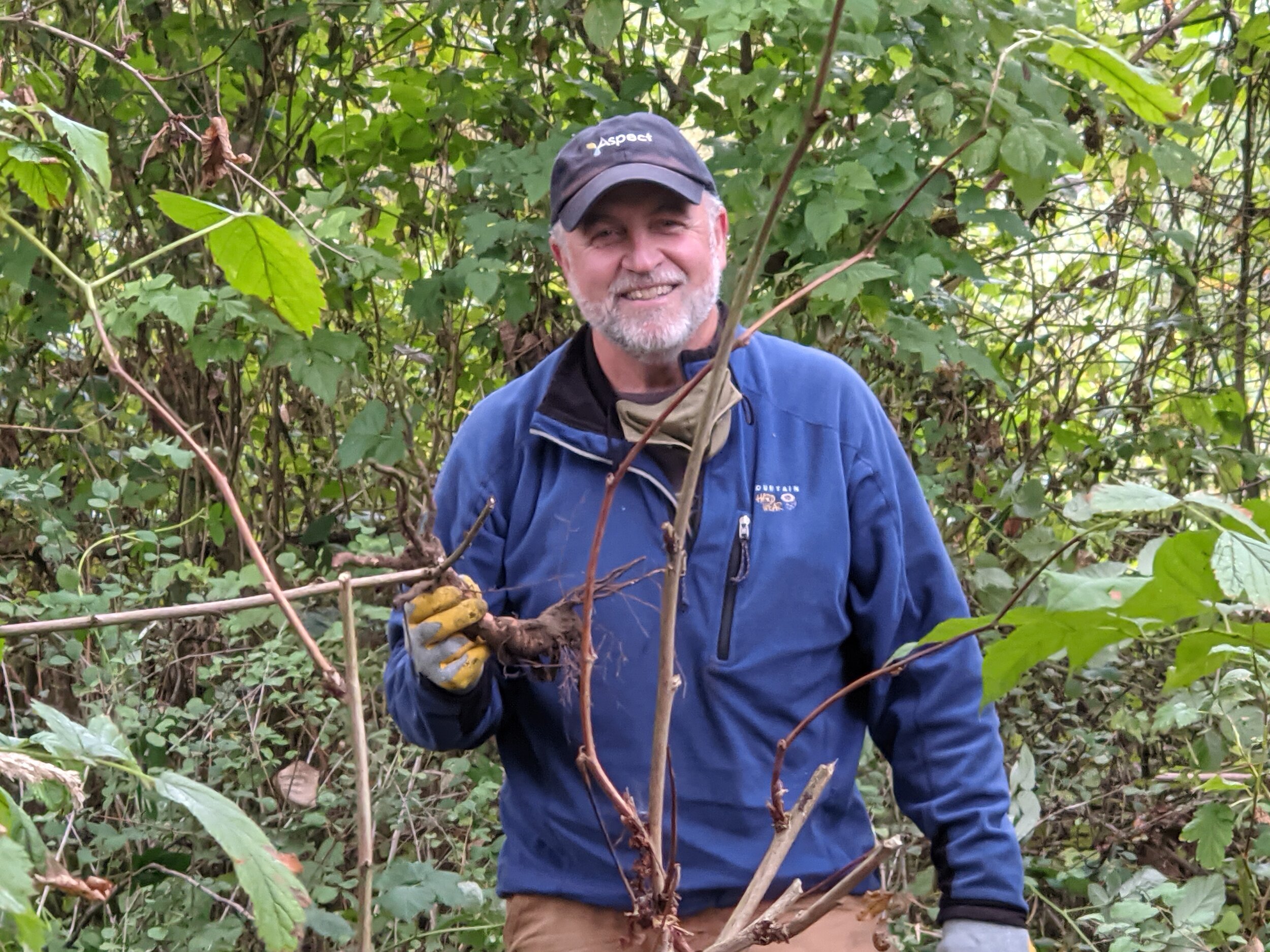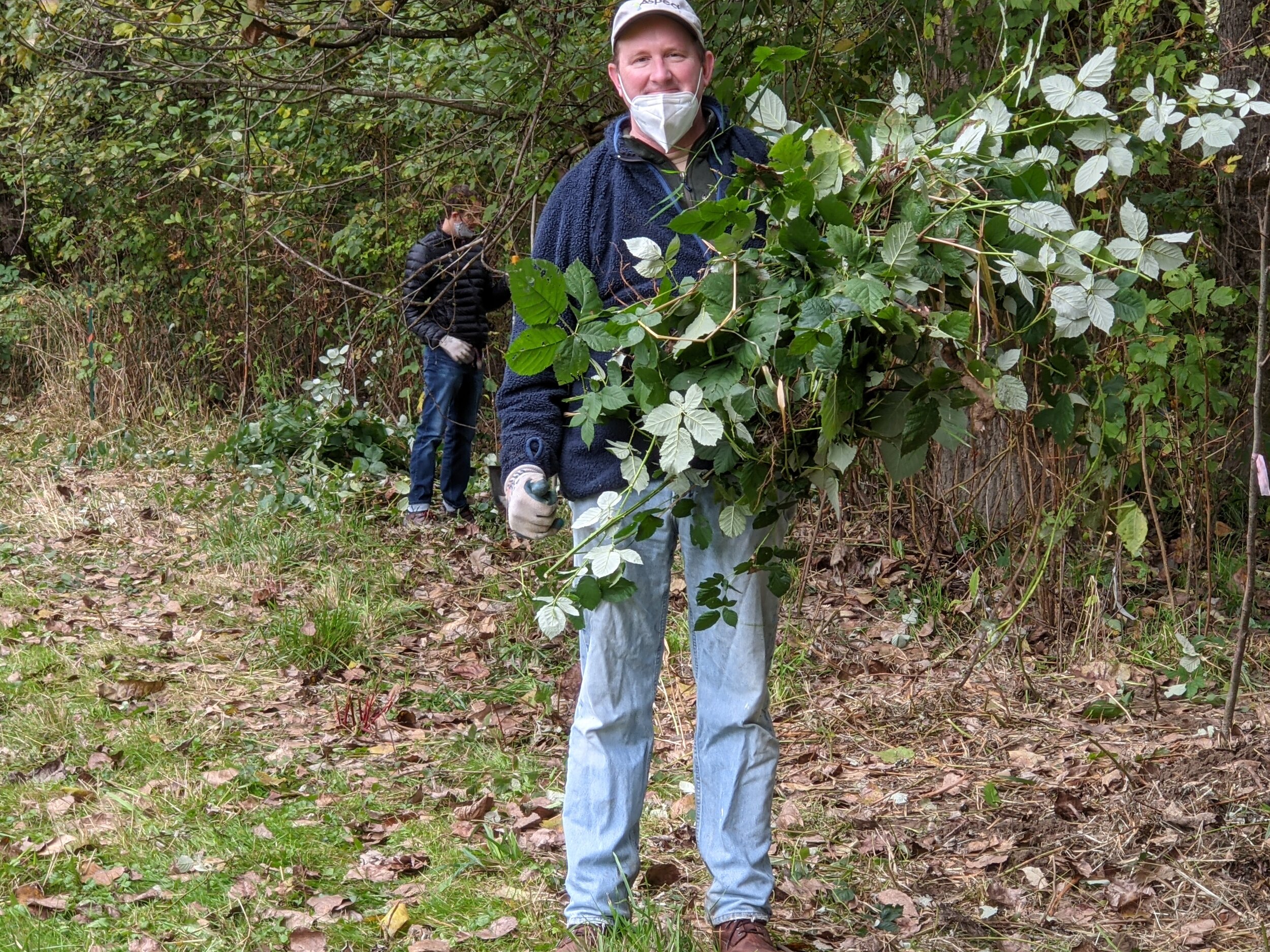Aspect recently welcomed Hanna Winter to our Bellingham office and Alec Melone to our Seattle office. Here are Five Questions we asked to get to know them better.
Hanna Winter, Project Environmental Data Scientist
Hanna and son on the Oregon coast in Seaside.
1. Where are you from? If you’re not from the Pacific Northwest, what brought you here?
I was born in Finland and grew up in Bellevue. I’ve been in Bellingham pretty much since moving here to attend Western Washington University.
2. What inspired you to pursue Environmental (Data) Science? What made you curious about it?
As a kid, I was an avid recycler and organizer of litter-cleanups. I dreamed of being a scientist who helped solve environmental challenges. Now, I have a bachelor’s and master’s degree in environmental science and have worked in water quality, wetlands, NEPA, soil carbon cycling, and sustainable agriculture. So I’ve covered a lot of topics!
My favorite part of each of these specialties was working with the data: analysis, visualization, and reporting. I’m a stickler for details and am always striving to learn new skills. That’s what inspired me to join Aspect’s Data Team.
3. What do you like best about your area of expertise? What excites you and keeps you motivated?
I enjoy nothing more than working with data to answer questions, tease out trends, and find the best way to present the results. I love working in R – especially for data wrangling, data visualization, and automating routine analysis tasks. I’m passionate about streamlining workflows, ensuring process transparency, and providing clear documentation, reporting, and communication.
Since I’m just starting on my environmental data science adventure with Aspect, I’m excited about the variety of work and projects, continuing to learn and grow my data management and analysis skills, and working in a team to solve complex data puzzles.
4. What do you like to do when you aren’t working?
Gardening and yard projects, cooking and preserving, hanging out with family and friends, taking walks, reading, watching movies, and camping or just having a campfire in the yard.
5. Where would your dream house be located?
In Bellingham with a secret 5-acre yard in the back, a sauna, and a portal in a closet so I can get to Finland quickly. Of course, I would also have an apartment in Helsinki to house the other end of the portal.
Alec Melone, Staff Geologist, GIT
Alec at Tuck Lake in the Alpine Lakes Wilderness. Note the geologically appropriate shirt - ‘Wait, I See a Rock’
1. Where are you from? If you’re not from the Pacific Northwest, what brought you here?
I grew up in Farmington, Connecticut where I went to Hamilton College thinking to study biology or history and took an introductory geology class to gain a better understanding of the rocks I’d been collecting as a hobby since childhood. After the intro course succeeded in hooking me and I’d finished my degree, I went to Central Washington University in Ellensburg to continue studying igneous petrology in a master’s program.
2. What inspired you to pursue engineering geology? What made you curious about it?
I fell in love with geology for the greater understanding of the world around me that could be gained and working in the geotechnical field allows me to better understand that natural and man-made world. With Aspect, I get to do field explorations where I am discovering the geology of places that may never have been studied in detail, as well as seeing everything that sits below the roads and buildings around us.
3. What do you like best about your area of expertise? What excites you and keeps you motivated?
It’s always satisfying to me to visit a site at the end of a project and think back to how it looked at the start, to compare the before and after and see the improvement. It gives me a feeling of accomplishment, and it’s good to know that the work I do gives clients peace of mind going forward.
4. What do you like to do when you aren’t working?
I love reading/listening to audiobooks, hiking in the woods, and playing board games with friends! Always looking for new book/game recommendations or cool places to check out! Also love trivia competitions and would love to talk your ears off about Tolkien lore!
5. Where in the world would you like to travel next?
I’d love to go to Italy someday to see the old Roman ruins, visit Pompeii, see Vesuvius and Etna. I’d also love to see the southwest US and hike the Grand Canyon, visit Petrified Wood National Park.





















